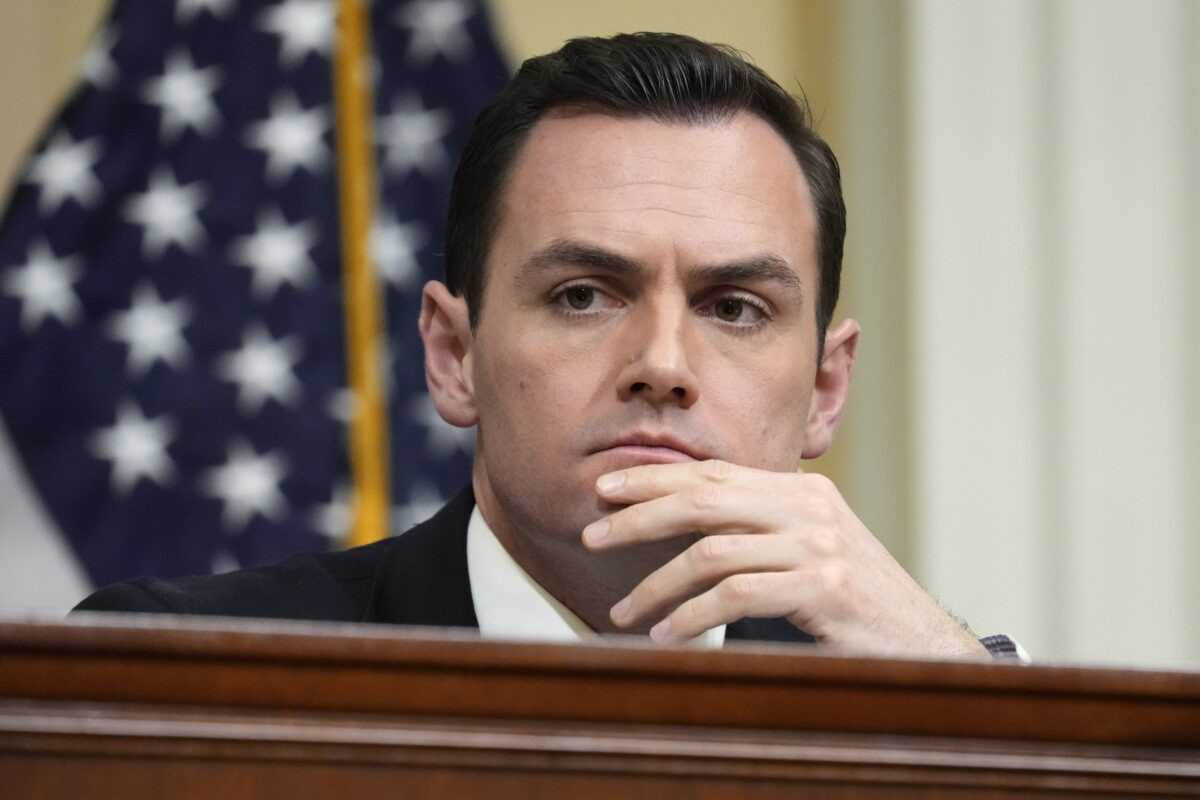

A Congressional delegation is traveling to the UK to coordinate with officials there on developing policies to more effectively counter China’s communist regime.
Rep. Mike Gallagher (R-Wis.), who chairs the House Select Committee of Strategic Competition with the Chinese Communist Party (CCP), will lead a delegation of Select Committee members to the UK on May 18 to coordinate on China strategy.
A source close to the Select Committee told The Epoch Times that members would meet with a British defense official and members of Parliament to coordinate China policy.
The trip comes at a time when the Select Committee is increasing its focus on developing policies to counter the economic coercion of the CCP on a global scale, particularly the regime’s continued theft of critical defense technologies and its efforts to insulate its own economy from international policies.
“This idea that we are somehow going to revive economic engagement as a way to moderate the CCP’s aggression is the triumph of delusion over hard-won experience,” Gallagher told The Epoch Times.
“The only question is, will we continue to be passive recipients of [China’s] decoupling strategy? Or, will we try to take charge of our own economic sovereignty, in concert with our allies, and insist at a minimum on basic reciprocity and leveling of the playing field?”
The UK has thus far been slow to adopt a strategy of de-risking such as that promoted by the United States and Germany. Current British Prime Minister Rishi Sunak has notably softened his stance on the regime by prioritizing economic engagement and reneging on a vow to categorize the CCP as a “threat” to the UK.
Sunak has, however, signaled that he may be amenable to following the United States’ lead on investment issues regarding China.
To that end, U.S. leadership is optimistic that the shared values and strategic goals that underpin the UK-U.S. alliance will win the day, according to State Department Deputy Spokesperson Vedant Patel.
“Between the United States and our European partners, including the United Kingdom, there continues to be immense convergence on the challenge faced by [China] and a key aspect of our strategy is to engage, to invest in line with our allies and partners,” Patel told The Epoch Times during a May 17 press conference.
The visit also follows closely on former UK Prime Minister Liz Truss’ visit to Taiwan this week, during which the former PM, who still serves as an MP, said that an “economic NATO” was required to counter the CCP regime’s efforts to vastly expand its military and further insulate its economy from Western influence.
The State Department is currently seeking to expand its funding for diplomatic missions and other investments in the Indo-Pacific as part of a wider effort to counter China’s authoritarian influence, according to Secretary of State Antony Blinken.
Speaking during a May 16 hearing of the Senate Appropriations Committee, Blinken said the United States could no longer wait for the regime to abandon its authoritarian ways, and would need to actively work to shape the strategic environment around the CCP.
“China represents the most consequential geopolitical challenge we face today: a country with the intent and, increasingly, the capability to challenge our vision for a free, open, secure, and prosperous international order,” Blinken said.
“We, of course, cannot dictate Beijing’s path. And we cannot wait for China to change its trajectory. But we can put ourselves in a position of strength to compete intensely to shape the broader strategic environment around China and advance our vision.”
While some in Washington have promoted decoupling from the Chinese economy, Blinken said that the Biden administration’s ambition was to de-risk, fortifying its position without severing ties between the world’s two largest economies.
“We are for de-risking and diversifying, not decoupling,” said Blinken.
“That means investing in our own capacities and in secure, resilient supply chains; pushing for a level playing field for our workers and companies and defending against harmful trade practices; and ensuring that U.S. and allied technology isn’t used against us.”
Regarding the administration’s decision to invest more heavily in non-military elements of national power, Blinken said that it was incumbent on the United States not to force other nations to choose between China and the United States, but rather to offer a more compelling value proposition.
“We are not demanding that other countries ‘choose’ between us and China but, rather, are offering a more attractive choice,” Blinken said.
“If we can spark a race to the top, that would be to everyone’s benefit.”




Discount Applied Successfully!
Your savings have been added to the cart.